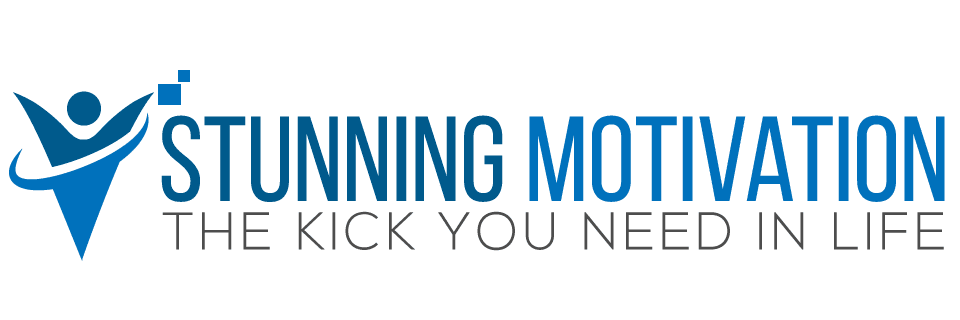Debt consolidation can often be a challenging journey, yet with the right steps, you can navigate the path to financial freedom more successfully. This guide is designed to provide you with six practical tips to consolidate your debt effectively.
Whether you’re grappling with student loans, credit card debt, or personal loans, these strategies can help you manage your obligations, potentially saving you thousands of dollars in the long run. Let’s delve into these tips and start your journey towards a debt-free life.
1. Assess Your Financial Situation

First and foremost, it is crucial to have a clear and comprehensive understanding of your current financial situation. Take a detailed inventory of all your outstanding debts, including credit cards, loans, and any other financial obligations. Note down their respective interest rates, minimum monthly payments, and remaining balance. This thorough assessment will provide you with a realistic view of your financial landscape and help you prioritize which debts to tackle first. Additionally, consider evaluating your income sources and identifying any potential areas for improvement or additional income streams. Understanding your complete financial picture will empower you to make informed decisions and develop a more effective debt consolidation strategy.
When assessing your financial situation, it’s important to remember that knowledge is power. Take the time to gather all the necessary information about your debts and income sources. By having a comprehensive understanding of your financial landscape, you’ll be better equipped to make informed decisions and prioritize your debt repayment efforts.
2. Research Debt Consolidation Options

There are several effective ways to consolidate debt, each with its own advantages and considerations. Take the time to research and explore these options thoroughly. For instance, you can consider balance transfer credit cards, personal loans, or even home equity loans.
Compare their interest rates, terms, and conditions, and choose the one that aligns best with your financial goals and circumstances. Look for reputable financial institutions and consider reading reviews or seeking recommendations from trusted sources to ensure you make an informed decision.
When researching home equity loans, look into options like the best HELOC lenders at HSH.com or any recommended firm by your family or friends. Make sure to compare interest rates and terms that can align with your financial goals and circumstances. You might also want to consider a 401(k) loan, particularly if you have a substantial amount saved in your retirement account.
This type of loan allows you to borrow against your 401(k) balance, generally up to half of your account’s value or $50,000, whichever is lower. It offers the advantage of a lower interest rate as compared to credit cards and some personal loans. Additionally, delve deeper into the specific requirements and eligibility criteria for each debt consolidation option to ensure you meet the necessary qualifications.
When researching debt consolidation options, it’s important to consider your individual financial goals and circumstances. Take the time to compare different options and understand their terms and conditions. By doing so, you’ll be able to choose the debt consolidation method that best fits your needs and helps you achieve your financial objectives.
3. Create a Budget

Developing a well-crafted budget is a fundamental step in successful debt consolidation. Start by listing all your income sources and categorize your expenses, including necessities, discretionary spending, and debt payments. Be thorough and realistic about your spending habits, and make necessary adjustments to ensure you stay within your budget. Allocate enough funds towards paying off your debt each month, while still allowing for your essential expenses. Consider using budgeting apps or tools to help you track your expenses and stay on top of your financial goals. Additionally, consider incorporating a savings component into your budget to build an emergency fund and prevent future financial setbacks.
Creating a budget is essential for effective debt consolidation. By carefully analyzing your income and expenses, you can identify areas where you can reduce spending and allocate more funds towards debt repayment. Remember to be realistic and flexible with your budget, and make adjustments as needed to ensure it remains effective in helping you achieve your financial goals.
4. Prioritize High-Interest Debts

When it comes to debt consolidation, it is generally wise to prioritize high-interest debts. These debts tend to accumulate interest at a faster rate and can significantly impact your overall financial health. By focusing on paying off these costly debts first, you can potentially save a significant amount of money in the long run. Consider allocating extra funds towards these high-interest debts while making minimum payments on other debts.
Additionally, consider contacting your creditors to negotiate lower interest rates or explore debt consolidation options specifically designed for high-interest debts. Taking proactive steps to address high-interest debts can expedite your debt repayment journey and provide you with a stronger financial foundation.
Prioritizing high-interest debts is a key strategy in effective debt consolidation. By tackling these debts first, you can minimize the amount of interest you pay over time and accelerate your progress towards becoming debt-free. Remember to explore options for negotiating lower interest rates or consolidating high-interest debts to further optimize your debt repayment efforts.
5. Seek Professional Guidance

If the debt consolidation process becomes overwhelming or if you feel unsure about the best course of action, do not hesitate to seek professional guidance. Debt counselors and financial advisors can provide valuable insights and advice tailored to your unique financial situation. They can help you navigate the various debt consolidation options, understand the potential risks and benefits, and make informed decisions that align with your long-term financial goals.
Research reputable financial advisors in your area or consider reaching out to non-profit organizations that offer free or low-cost financial counseling services. Additionally, consider attending financial literacy workshops or webinars to enhance your knowledge and gain a deeper understanding of debt management strategies.
Seeking professional guidance can be a wise decision when it comes to debt consolidation. Financial advisors and debt counselors have the expertise to provide personalized advice and guidance based on your specific financial situation. Their insights can help you make informed decisions and develop a comprehensive debt consolidation plan that aligns with your long-term financial goals.
Stay Committed to Your Debt Repayment Plan

It is important to remember that debt consolidation is not an overnight solution. It requires patience, discipline, and perseverance. Once you have established a debt repayment plan, stick to it consistently. Avoid taking on new debt during this period and focus on gradually chipping away at your existing debt. Celebrate small victories along the way to stay motivated and track your progress.
Regularly review your budget and make adjustments as needed to ensure it remains effective. With time and persistence, you will make significant progress toward financial freedom and a brighter financial future. Remember, the journey towards debt-free living is a marathon, not a sprint, and staying committed to your debt repayment plan will yield long-lasting results.
Staying committed to your debt repayment plan is crucial for long-term success. It’s important to avoid taking on additional debt and to consistently make progress toward paying off your existing debts. By staying disciplined and celebrating small victories along the way, you’ll stay motivated and on track toward achieving financial freedom.
Regularly reviewing and adjusting your budget will help ensure that your debt repayment plan remains effective and aligned with your financial goals. Remember, the journey towards becoming debt-free takes time, but with persistence and dedication, you can achieve lasting results.
Conclusion
Debt consolidation can be an effective strategy to manage and eliminate your debts, paving the way toward greater financial freedom. Though the process may seem daunting, by assessing your financial situation, researching your consolidation options, creating a realistic budget, prioritizing high-interest debts, seeking professional guidance, and staying committed to your repayment plan, you can navigate this journey successfully.
It’s a marathon, not a sprint, but with the right approach and dedication, you’ll cross the finish line to a debt-free life. Remember, financial freedom isn’t just about paying off debts; it’s about building a future where financial stress doesn’t dictate your choices, and where you’re in control of your money.


